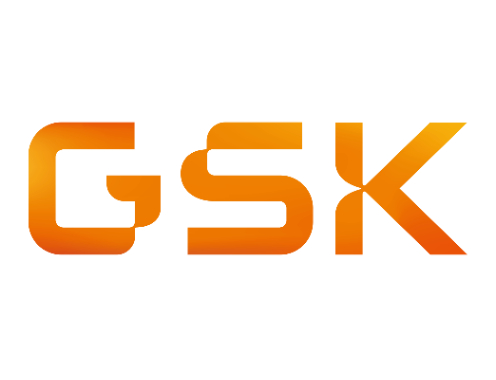Merve Macit - Country Head of HR for Switzerland & Sweden at GSK


Merve Macit is the Country Head of HR for Switzerland & Sweden at GSK, a pharmaceutical manufacturing company uniting science, technology, and talent to combat diseases.
Speaking to Drew Larcombe, Merve shares her passion for Human Resources, her journey with GSK, and her opinions on why HR needs to evolve from a reactive and transactional role into a proactive, consultative partner.
Why did you choose a career in Human Resources?
Coming from business school, I could have chosen any function within a company to work in. Ultimately, I chose HR because I have always been passionate about helping others realize their potential - the coaching element - which HR allows me to do on a larger scale.
HR is unique, as you can influence both company culture and business success by aligning People strategies to the broader organizational goals.
It’s also interesting, as there’s complexity in measuring certain KPIs and behaviours; it's not always straightforward to see the impact of your actions in a short timeframe. I found that quite exciting because it makes HR a field with many opportunities for creative solutions to make a significant impact, requiring you to think outside the box.
You started your career at GSK in the Future Leaders Programme. How did the rotations within the scheme shape your career path and inform your views on HR strategies?
I had four rotations within three years during the programme, and moved around every nine or ten months, making it quite compact.
It was really transformative, as I was exposed to the full spectrum of HR functions including business partnering, Center of Excellence, and HR operations, all at local, regional, and global levels.
Additionally, I had the opportunity to gain direct business experience through a rotation outside of HR. It’s not every day that you can decide that you’re interested in Marketing and Consumer Healthcare and go and spend nine months there. So, it was great to have that playground time, especially when I was first dabbling my toes into the corporate world.
Each rotation was like a new lens, helping me shape my unique identity as a strategic HR leader. I got to work across different areas, making me a more holistic HR professional. It also enabled me to connect the dots between employee engagement, talent, strategy, and business outcomes, as I got to tap into all those different areas, being in the shoes of the business.
Looking back, I'm glad that I started my career as part of the programme. It was a great luxury to explore your career development and interests in a stretching and supportive environment.
How did you adapt your HR strategies to navigate cultural and regulatory differences across diverse regions?
I can comfortably answer this question. After having worked in six different countries, I learned that adapting HR strategies across diverse regions requires a blend of flexibility and respect for local regulations and cultural nuances - it's finding that balance.
Earlier on in my career, I learned how to do this and the importance of listening and observing, especially when entering a new cultural context, as a one-size-fits-all approach doesn't work in HR. There are local nuances in communication, work, and expectations.
Additionally, cultural nuances don't only change across different geographies, as one would expect, but also within the same country. There are different nuances and subcultures specific to different teams.
Even when I was assigned to a new business in the same country, I would need to start from scratch and just observe. By actively taking time to diagnose the cultural context, building trust and connections with my stakeholders, and involving the leaders and employee feedback in the diagnosis process and strategy design, I have been able to create relevant HR solutions that resonate across regions. So, you have that balance between global consistency and local adaptability.
We've previously discussed how to unlock the true potential of HR business partnering. You have partnered globally with businesses in R&D, pharma, commercial, and consumer healthcare. Can you share your views on how to unlock true potential?
What I'm going to say is not rocket science. I think most of my HR colleagues would agree that, to truly maximize our impact, HR needs to evolve from a reactive and transactional role into a proactive, consultative partner.
For me, that means embedding myself with the business, working directly alongside my leadership team to anticipate their needs and coach them through change, rather than responding to the needs when they occur. It's also about being data-driven and business-focused, understanding the different unique drivers and gaps within each function, and knowing the people well.
I always look back and ask myself: Is this how I feel the situation is right now? If it's not, I need to do something.
A very simple visualization that resonates with me is being at the table with the business from start to finish and we're all speaking the same language. For me, that checks a lot of the boxes in how I need to be feeling; if I'm not there with the business to plan for the future from the start, I'm not fully leveraging the potential of my role.
By deeply integrating and engaging in even the most basic version of strategic workforce planning, it can still drive meaningful outcomes for the business.
To relate this to your journey, would you say the key to your career thus far has been to constantly assess how you can directly add value to the business?
Absolutely. As I said, I see HR not only as a support function, but as an enabler of business success. What I've always been trying to think about is how HR can address the different challenges, whether it's improving a talent retention plan across multiple countries, supporting our organizational change, or just driving engagement.
This approach of constantly assessing what we can do better and how we can make things work together has helped me prioritize initiatives with the most direct impact, ensuring that our HR work aligns with business objectives and delivers measurable results.
However, there are challenges. We can't always assume that the business immediately recognizes the value that a strategic HR partner can bring. So, the key thing I've actively worked on the most was how to get that buy-in from the business. Sometimes this requires demonstrating this value over time through the impact of strategic HR interventions and planning.
Here’s a very simple example: a talent review and a succession planning discussion may initially seem like a routine activity to a leader, until one day we have an urgent need to fill a key position. We're able to leverage the succession plans we put in place to strategically fill these gaps to ensure business continuity, because we're building these people when we had that buy, borrow, build strategy. This proves to the business the importance and impact of proactive HR strategies. That for me has always been the moment I come in - how can I get the buy-in from the business so they can help me do my job and their jobs better?
Lastly, it's crucial that the business owns and drives the pre-work and outcomes of such people and culture discussions; if leaders don't hold themselves accountable for knowing their people and understanding their future capability and resourcing needs, HR processes will only be a tick-in-the-box activity, and it won't go any further. So, I believe effective HR requires partnership and accountability for the business to truly add value – the first challenge basically begins there: How do you get the buy-in?
Broadening out from business partnering specifically, in your opinion, how should HR be viewed by an organization as a broader function?
Of course, as a broader function, when you look at the different types of roles within the HR model, it may vary slightly. Holistically, you may focus more on HR partners or business partners ultimately, because they're the ones that create the bridge between the business and the other functions. HR partners should be viewed as strategic partners, working alongside the business to align People strategies with business objectives to drive performance and culture.
Once the leadership team or an organization view HR as an integral part of its success journey and include HR in these strategic discussions, they can be more proactive, as opposed to reactive in the way they manage change and ensure agility to be future proof.
What is your advice for somebody wanting to explore a career in HR?
It’s very important to take those opportunities that allow you to get close to business, whether it's job shadowing, gaining exposure, or just listening.
You can add more value in HR if you thoroughly understand who you're serving. It goes back to the same story if you're working in Marketing or Sales - you need to know your customers and those you're serving. In HR, our customers are the employees and the function. So, it's really knowing your customer base, and understanding and learning about that business so it can add more relevance, and you can speak the same language at the table.
Thank you Merve for speaking to Drew Larcombe in our Human Resources recruitment team in Switzerland.
Views and opinions contained within our Executive Interviews are those of the interviewee and not views shared by EMEA Recruitment.






You can also use your social account to sign in. First you need to:
Accept Terms & Conditions And Privacy Policy